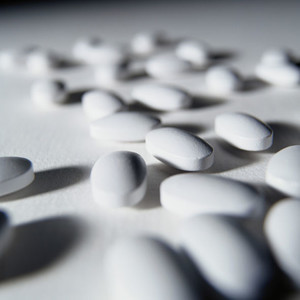The Korean Ministry of Food and Drug Safety (MFDS) has taken action to improve the quality of generic drug products and ensure an efficient and competitive generics market.
Generics reform in Korea
Home/Guidelines
|
Posted 31/07/2020
 0
Post your comment
0
Post your comment

In July 2020, the Korean MFDS released new guidelines to ensure improved manufacturing and quality control of generics made through consignment contracts. In these guidelines, the duties and responsibilities of consignors and consignees are laid out and well defined. The consignors are defined as manufacturers of raw materials, additives, in-process material and finished drugs. In contrast, consignees do all or part of the manufacturing on behalf of the consignor. It is hoped that this will help ensure high standards of good manufacturing practices and thorough quality control.
Additionally, the Korean MFDS announced that it will start providing information about generic drugs to make it easier for the public to identify differences between generic drug products. This is in response to the rapid growth of the number of generics on the Korean market that have different names but the same ingredients. This has led to rebate practices becoming prevalent. To tackle the inefficiencies of the market and strengthen the international competitiveness of generics, the government formed a public–private consultative body. This has prompted the recent announcement and the decision to publicize the name of the pharmaceutical company which performs bioequivalence tests on generic drugs.
By checking the ministry’s website, it will soon be possible to easily identify which generics are made in the same manufacturing facilities using the same production processes on the basis of the bioequivalence test results. It is hoped that this increased transparency will prevent companies flooding the market with generic products.
Related articles
Improving the pathway for generics approval in the US: 2019 update
Generics outreach programs should target high income groups
Permission granted to reproduce for personal and non-commercial use only. All other reproduction, copy or reprinting of all or part of any ‘Content’ found on this website is strictly prohibited without the prior consent of the publisher. Contact the publisher to obtain permission before redistributing.
Copyright – Unless otherwise stated all contents of this website are © 2020 Pro Pharma Communications International. All Rights Reserved.
Policies & Legislation
Brazil and Mexico forge alliance to streamline medical approvals and boost production
EU accepts results from FDA GMP inspections for sites outside the US
Most viewed articles
The best selling biotechnology drugs of 2008: the next biosimilars targets
Global biosimilars guideline development – EGA’s perspective
Related content
US guidance to remove biosimilar comparative efficacy studies
New guidance for biologicals in Pakistan and Hong Kong’s independent drug regulatory authority
Canada poised to remove requirement for Phase III trials for biosimilars
European position paper on AI in medicinal product lifecycle
New guidance for biologicals in Pakistan and Hong Kong’s independent drug regulatory authority

Home/Guidelines Posted 20/10/2025
Canada poised to remove requirement for Phase III trials for biosimilars

Home/Guidelines Posted 22/07/2025
The best selling biotechnology drugs of 2008: the next biosimilars targets








Post your comment